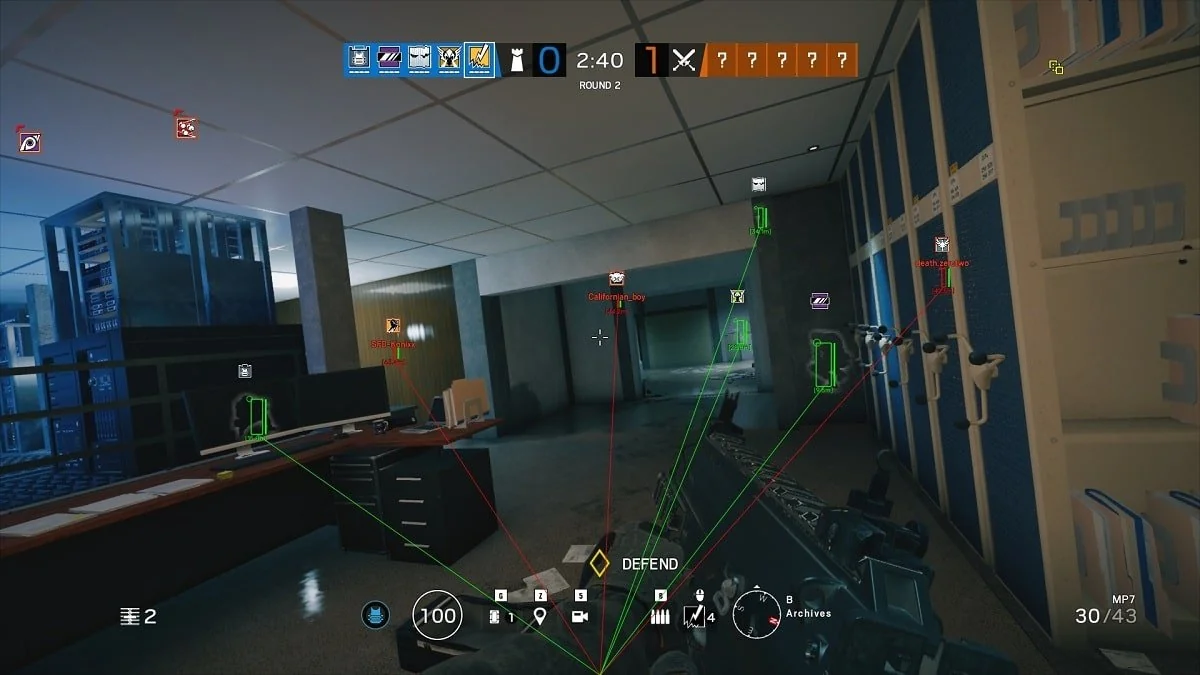In the realm of online gaming, Rainbow Six Siege (R6 Siege) stands out as one of the most challenging and tactically intricate first-person shooters. With its emphasis on teamwork, strategy, and precise execution, it has garnered a dedicated fanbase since its release in 2015. However, like many competitive online games, R6 Siege has not been immune to the scourge of cheating.
Cheating in R6 Siege, often referred to as “R6 cheats,” encompasses a range of illicit activities aimed at gaining an unfair advantage over opponents. These cheats can manifest in various forms, including aimbots, wallhacks, recoil macros, and exploits that allow players to see through walls or shoot through solid objects. While the developers of R6 Siege, Ubisoft, have implemented anti-cheat measures and regularly ban cheaters, the problem persists, albeit in a cat-and-mouse game between cheaters and anti-cheat systems.
The prevalence of R6 cheats raises significant ethical concerns within the gaming community. At the core of this issue lies the tension between fair play and competitive integrity. In any competitive environment, whether it be sports, esports, or online gaming, the fundamental principle is that success should be determined by skill, strategy, and dedication rather than by exploiting loopholes or using external assistance.
When players resort to cheats in R6 Siege, they undermine the integrity of the game and compromise the experience for others. Fair competition becomes impossible when some players have an unfair advantage conferred by cheats. This not only frustrates legitimate players but also erodes trust in the game’s community and damages its reputation. Moreover, cheating can deter new players from joining the game or discourage existing players from investing time and effort into improving their skills, ultimately harming the game’s longevity and sustainability.
Furthermore, cheating in R6 Siege can have broader consequences for the esports scene surrounding the game. Esports relies on a foundation of fairness and integrity to maintain its legitimacy as a competitive sport. When cheating incidents occur, they cast a shadow over the entire esports ecosystem, tarnishing the reputation of players, teams, and the game itself. Sponsors may become wary of associating their brands with esports titles plagued by cheating scandals, leading to financial repercussions for teams and organizers.
Despite the clear ethical imperative to combat cheating in R6 Siege, addressing the issue is not straightforward. Cheating is often driven by a combination of factors, including the desire for a competitive edge, the thrill of outsmarting detection systems, and, in some cases, financial incentives. Moreover, the underground market for cheat software is lucrative, with developers continuously devising new ways to circumvent anti-cheat measures.
To effectively combat R6 cheats, a multi-faceted approach is necessary. First and foremost, developers like Ubisoft must remain vigilant in their efforts to detect and punish cheaters swiftly and decisively. This requires a combination of automated anti-cheat systems, manual review processes, and community reporting mechanisms. Transparency in the enforcement of anti-cheat policies is also crucial to maintaining trust within the player base.
Education and awareness-raising campaigns can also play a vital role in combating cheating. By educating players about the negative impact of cheating and fostering a culture of fair play and sportsmanship, the gaming community can collectively reject cheating as unacceptable behavior. Additionally, initiatives to promote positive gameplay experiences, such as mentorship programs for new players and rewards for good sportsmanship, can help mitigate the factors that drive players towards cheating.
At the same time, addressing the root causes of cheating requires a nuanced understanding of the motivations behind it. Factors such as the competitiveness of the gaming environment, the prevalence of cheat software, and the efficacy of anti-cheat measures all influence the decision-making process of would-be cheaters. By addressing these underlying factors, developers can make cheating less appealing and reduce its incidence over time.
Ultimately, the battle against R6 cheats is an ongoing struggle that requires collaboration and commitment from all stakeholders in the gaming community. By upholding the principles of fair play and competitive integrity, we can ensure that games like Rainbow Six Siege remain vibrant, engaging, and enjoyable for players of all skill levels. Cheating may provide a temporary shortcut to success, but it comes at the cost of undermining the very essence of what makes gaming meaningful: the thrill of honest competition and the satisfaction of achieving victory through skill and perseverance.
